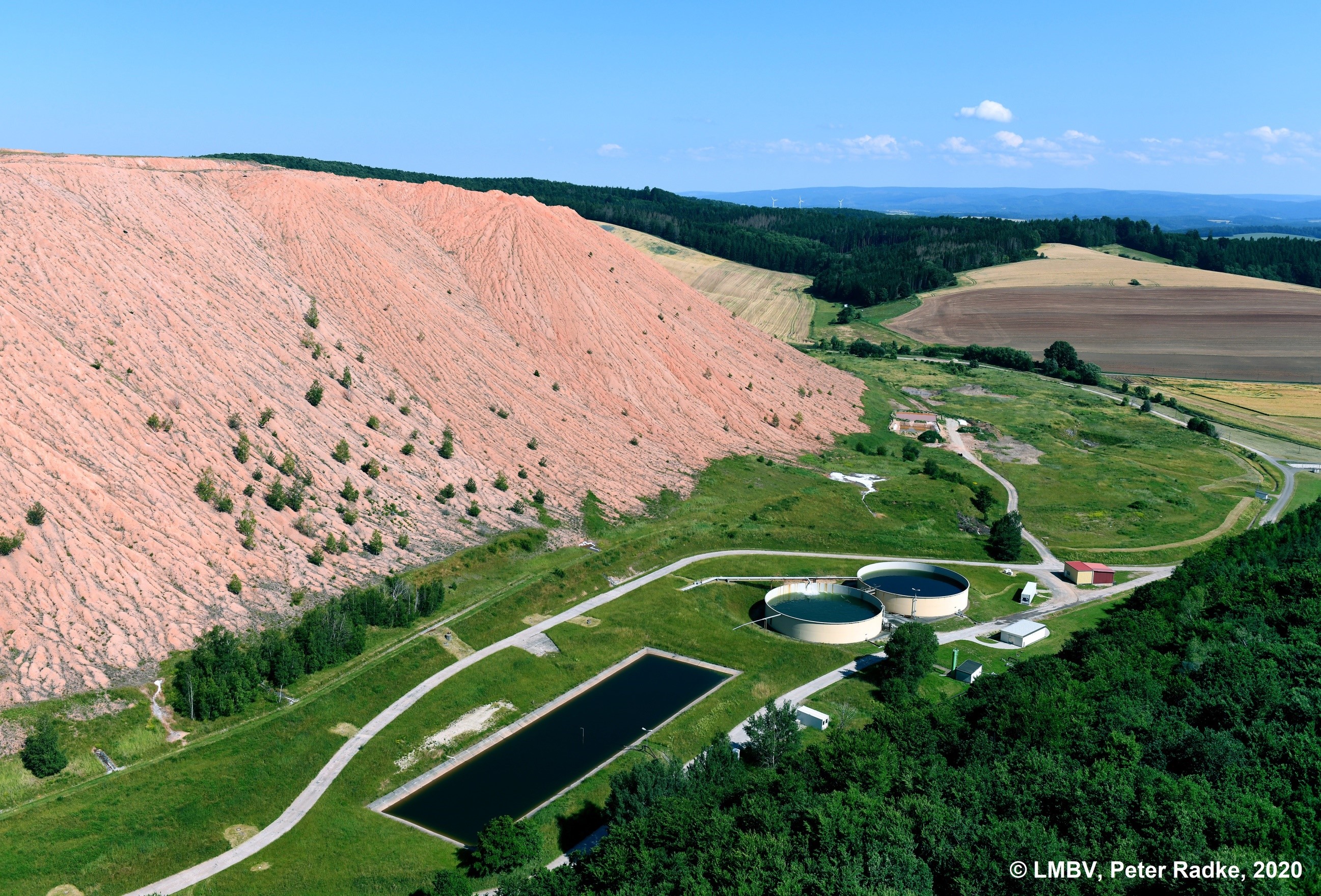Project for the treatment of saline mining wastewater launched
HaSiMem – Water and salt from saline water
The availability of water of suitable quality is a growing challenge worldwide. A number of processes are available for the treatment and processing of industrial and municipal wastewater, which are adapted to the substances contained in the wastewater. The treatment of wastewater containing salts represents a particular challenge, as the separation of salt and water requires a very high technical and energy input. By separating salts from water, they can be put to further use and the discharge of saline wastewater into water bodies can be reduced or even avoided altogether. Using the example of saline leachates from residual waste piles in the potash industry, the “HaSiMem” project will investigate whether the membrane distillation process is advantageous compared to the classic form of evaporation of saline wastewater. The joint project, which is funded by the German Federal Ministry of Education and Research, is headed by K-UTEC AG Salt Technologies and will be implemented over the next three years with the partners Fraunhofer Institute for Ceramic Technologies and Systems IKTS, Solarspring GmbH, K+S AG and LMBV mbH.

The disposal of salt-contaminated wastewater, for example from metal mining and extraction, sea salt extraction and from potash and lithium extraction processes, is not only a national but a global issue. The HaSiMem project stands for “Water recovery from tailings leachates based on membrane distillation processes and coupling with crystallization” and aims to develop a competitive treatment process for water and salt recovery from salt-contaminated tailings leachates. The coupled process is expected to increase water availability, enable the recovery of salts for commercial utilization, and reduce the discharge of salt into receiving waters.
Application partners in the HaSiMem consortium are K+S Aktiengesellschaft and LMBV mbH. As an international raw materials company, the K+S Group is one of the leading suppliers of mineral products and operates the mining of crude salt containing potassium, magnesium and sulphur through K+S Minerals und Agriculture GmbH. K+S has set itself ambitious targets for reducing the salt load entering receiving waters from mining operations and is providing a site for the pilot plant developed in this project, in which the process can be realistically tested. The LMBV - Lausitzer und Mitteldeutsche Bergbauverwaltungsgesellschaft mbH - is also facilitating the test operation of a pilot plant on its tailings pile. With its Potash-Spath-Ore division, the LMBV bears mining law responsibility for several former state-owned mining operations in the German states of Saxony, Thuringia and Saxony-Anhalt that have been closed since 1990. For the LMBV, ways of recycling and disposing of highly concentrated salt solutions, for example seepage water from the tailings pile of the disused Bischofferode potash mine, are a high priority. As research partners, SolarSpring GmbH, Fraunhofer IKTS at the Hermsdorf site, and K-UTEC AG Salt Technologies are involved in the development of new technologies for the treatment and recovery of resources from saline wastewater from the mining industry.
Sensible technical solutions for the treatment of salt-contaminated waters are in demand not only in Germany, but also in China, Chile, India, Mexico, Peru, the USA and many other countries in order to counteract the water shortage prevailing in numerous regions and to improve water availability. The project is thus making an important contribution to meeting an international environmental challenge.